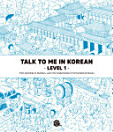Multilingual Education and Sustainable Diversity Work: From Periphery to Center
Información sobre este eBook
Colin R. Baker, Pro Vice-Chancellor, Bangor University, Bangor, Wales, UK
A norm-setting work on multilingual education, which combines theoretical perspectives with practical experience from different parts of the globe, this book demonstrates convincingly not only that multilingual education works, but also that, for most developing countries, there is no viable alternative.
Ayo Bamgbose, Professor Emeritus, University of Ibadan, Nigeria
This excellent volume brings to light the fascinating lived experiences of multilingual education in linguistically rich but resource impoverished countries, and offers important lessons from which we can all learn.
Amy B. M. Tsui, Professor , Pro Vice-Chancellor & Vice President, The University of Hong Kong, Hong Kong
This is a book of hope and inspiration. Documenting the significant shift that is taking place in countries around the world in the status and legitimacy of mother tongue-based multilingual education, it represents a giant step towards a "tipping point" where mother tongue-based multilingual education will be normalized as the preferred and, in fact, common sense option for educating the children of the world.
Jim Cummins, The University of Toronto, Canada
This important book challenges us to think about multilingual education from a different angle––this time putting the periphery at the center. The effect is one of destabilizing old visions and imagining new worlds where multilingual education provides the backdrop for generous understandings of all peoples.
Ofelia García, Program in Urban Education, Graduate Center/The City University of New York, USA
There are regrettably few detailed accounts of successful elementary school instruction in the pupils' home language, which makes this book with its surprising examples (especially Ethiopia and Nepal but other third world cases) so relevant. Students of language education policy will learn a great deal about the possibility of multilingual education from the chapters of this important book.
Bernard Spolsky, Professor Emeritus, Bar-Ilan University, Israel
At least half of today’s languages are marginalised and endangered and the attention of the world needs to be focused on these minor and minority languages together with the value of multilingualism. If the book succeeds in enhancing the consciousness of the world towards predicaments of the third world, then its efforts will have been amply rewarded.
Debi Prasanna Pattanayak, Former Director, Central Institute of Indian Languages, India
Drawing on the most powerful and compelling research data to date and connecting this research to linguistic human rights, this book explores the conditions and practices of robust bilingual and multilingual educational innovations in both system-wide and minority-settings and what it is that makes these viable. It demonstrates how, in countries where educational practices are inclusive of linguistic diversity and responsive to local conditions and community participation, implementation of bilingual education even within limited budgetary investment can be successful.
Valoraciones y reseñas
Acerca del autor
Tove Skutnabb-Kangas is Associate Professor (Retired), University of Roskilde, Denmark and Associate Professor, Åbo Akademi University, Finland.
Kathleen Heugh is Senior Lecturer, English Language, University of South Australia and Extraordinary Associate Professor of Linguistics, University of the Western Cape, South Africa.




